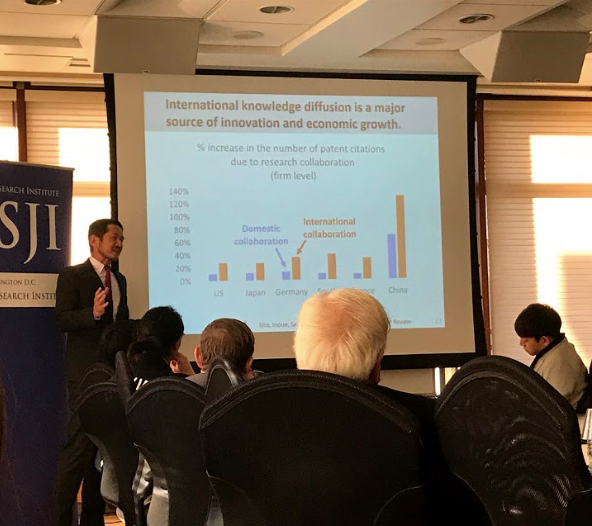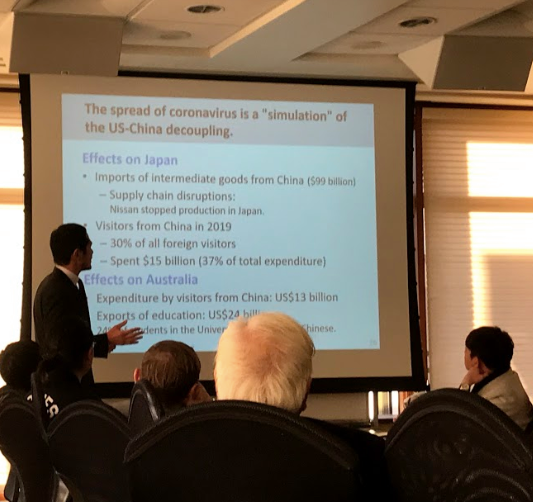The Global Effects of US-China, Japan-ROK Economic Decoupling
The Global Effects of US-China, Japan-ROK Economic Decoupling


On February 28th, 2020 The Reischauer Center and Dr. William Brooks hosted Dr. Yasuyuki Todo, professor of economics at Waseda University, to present his research on the potential global impact of transpacific economic decoupling and propose policies to prevent a decoupling spiral.
Drawing on an econometric analysis of the 2011 Great East Japan earthquake, he argued that US sanctions on Chinese technology companies and Japanese sanctions on South Korea can produce huge indirect disruptions as they propagate through global supply chains. Complex supply and research networks can be damaged, to the detriment of international prosperity. Dr. Todo went on to argue this could produce a psychological feedback loop flowing from negative economic shocks to populist policy preferences and protectionism, further worsening economic conditions. He then proposed three potential policy responses to prevent decoupling or ameliorate its effects. First, the international community should set clearer rules on national security exceptions to investment flows and technology transfers. Second, he argued that the international community should promote international people-to-people ties to foster pro-globalization views. Third, countries should seek to diversify their international supply chains to reduce the indirect effects of sanctions shocks.
Dr. Todo then fielded audience questions on topics including the US-China trade war and mechanisms for foreign investment screening.
Categories
© 2025 The Edwin O. Reischauer Center for East Asian Studies at the Johns Hopkins School of Advanced International Studies (SAIS), a division of the Johns Hopkins University. All Rights Reserved.
Sitemap | Custom WordPress Design, Development & Digital Marketing by time4design.


